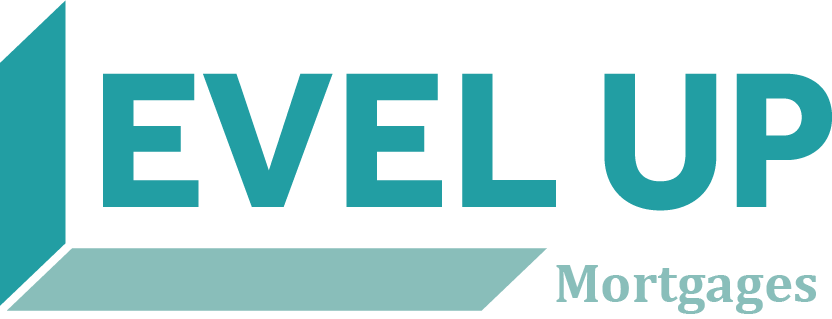A second mortgage loan typically has an interest rate that is one to two percent higher than the first mortgage loan. Of course, this all depends on your personal credit score, as well as the type of loan you are applying for. If you are applying for a second mortgage loan on a house that is worth less than 30 percent of its original value, the rate may be up to three percent higher than a first mortgage loan.
Read MoreObtaining a mortgage when you’re self-employed can feel overwhelming at first. You can’t follow the traditional path of earning a steady salary, but it’s still easy to manage.
Read MoreGetting pre-approved for a mortgage helps people get lender approval before buying a house. It gives the buyer peace of mind knowing that they can purchase a property that they can afford. Being pre-approved for a mortgage will be a great advantage for buyers since they can get an idea of the mortgage amount they can afford. It can help them save on their time, energy, and efforts when looking at prospective houses.
Read MoreAre you in Canada already, or have you not arrived yet? Whatever the case may be, now is a great time to look into your options for understanding and obtaining a mortgage! There's no such thing as being too early or too late at looking into immigrant mortgage options.
Read MoreThere are many nuances to succeeding with your mortgage as an entrepreneur, but in this article, we're going to cover the first major considerations, including what trade-offs you need to balance when it comes to paying less taxes, and also how you can qualify for the mortgage you need.
Read MoreTraditionally, the mortgage application process is relatively fast and easy, especially for someone with a steady income from a full-time job. Applicants can provide their bank statements and credit score to prove their income and the value of their property before they receive approval.
Read MorePeople tend to rely on mortgages to fulfill their dream of buying a home. Besides the financial relief that they can get from it, it will also allow them to focus on other expenses that they may incur along the way. The thing is, things are way different in Canada than it is in the U.S., that is why one must familiarize themselves with the differences so they may get a great deal out of it.
Read MoreRefinancing a mortgage allows the borrower to move their existing mortgage somewhere else with more favourable terms. In a place like Canada, refinancing a mortgage is ideal for many people because the terms are generally more relaxed. However, despite its benefits, many people don't often choose mortgage refinancing for various reasons, such as sticking with their current terms or not knowing of it in the first place.
Read MoreAre you looking for a mortgage to purchase your new home? One of the biggest concerns you should have is its interest rate. Sure, different mortgages come with different rates—some higher and some lower. However, you need to be aware of two types of rates: fixed and variable.
Read MoreFor many, buying a home for the first time can be just as exciting as it is exhausting. It’s exciting because you're taking a leap in the right direction in terms of building equity and security. It's scary because it's a huge financial decision that can be very risky if you're not careful.
Read MorePerhaps one of the most important factors lenders will consider is your credit score when it comes to mortgages. With this, you'll get to qualify for different mortgage rates, allowing you to make big purchases.
Read MoreFor many individuals living in Canada, owning a home is a dream that they have. Of course, the reason behind this may vary. Some may simply want a home of their own to live in, while others see it as a lucrative business opportunity to up their income. Regardless, as a homeowner, there are a lot of responsibilities, and it isn't for everyone.
Read MoreSecond mortgages can be a smart financial decision as long as you understand the risks, and look at it as an investment into something that may have bigger returns in the future. Higher education, renovations, debt consolidation, and smart investments are usually the main reasons to take this on. Not only will this give you extra cash, but it can also protect your investment. However, before you jump on this decision, you must take time to research and understand the idea first.
Read MoreYou are planning to buy your first home, but you may be wondering if you are making the right choice. Purchasing a house can seem like an overwhelming endeavour, but that does not mean that you cannot succeed at it if you arm yourself with the right strategies.
Read MoreIt's not impossible to get a loan in Canada if you're self-employed. Usually, that just means more documentation is required. Largely, it's so that clear proof comes through about your income. If you had a regular employer you'd get paychecks and the like; since you employ yourself, you need to prove how consistent your pay is and for how much.
Read MoreWelcome to Canada, your home sweet home. Or so you would think, considering the dramatic increase in newcomers settling down across the great nation. If you’re one of these new Canadians, or even if you’re thinking of making the move, there are a few challenges we all share, and it might be time to prepare yourself for them ahead of time. What are they?
When you move to a new country, it can be challenging to adjust to the culture and begin a new life. As a result, several financial institutions provide mortgage choices for immigrants to aid their transition into homeownership.
Read MoreDid you know that you can get a loan to renovate a home that you are purchasing? You can add the costs to your mortgage using what is called a Purchase Plus Improvements mortgage. Of course, this only applies to properties you intend to purchase in Canada.
Read MoreWhen should you lock in your variable into a fixed rate mortgage? If you are buying a home this year, which option will save you the most money? If you understand the innate differences between fixed and variable rates then the below breakdown will help you make the best educated decision.
Read MoreThe terms credit score and credit rating are more or less used interchangeably in casual conversation, but there is a difference. A credit score ranges from 300 to 900. Nine indicates the highest risk for payment default, while a credit rating is one to nine and is specific to individual accounts or tradelines that appear on a credit report.
Read More



















